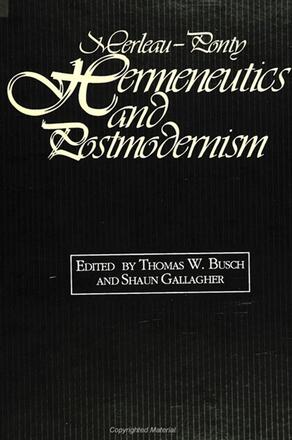
Merleau-Ponty, Hermeneutics, and Postmodernism
Alternative formats available from:
Opens up new dimensions in the philosophical thought of Merleau-Ponty and addresses contemporary issues concerning interpretation theory and postmodernity.
Description
This book opens up new dimensions in the philosophical thought of Merleau-Ponty and addresses contemporary issues concerning interpretation theory and postmodernity. In Part I the authors employ the texts of Merleau-Ponty to challenge many of assumptions that operate in the current field of hermeneutics. They find in Merleau-Ponty the outline of a hermeneutics of ambiguity that incorporates his accounts of the human body, language, and temporality in working out the concepts of interpretation, context, perspective, truth, and interpersonal transgression. Merleau-Ponty thus enters into a productive dialogue with contemporary thinkers such as Gadamer, Ricoeur, Habermas, Levinas, and Derrida.
Part II engages Merleau-Ponty with the "many voices" of postmodernism. Some of the most able Merleau-Ponty interpreters reveal the richness of his work through variant readings. Can Merleau-Ponty be construed as a postmodern thinker, or as a critic of postmodernism? To what extent can the concepts of flesh, reversibility, and ecart be made to function as deconstructive non-concepts? What can Merleau-Ponty contribute toward a postmodern politics? These essays move the discussion from Derrida to Deleuze, Foucault, and Lyotard.
Thomas W. Busch is Professor of Philosophy at Villanova University. He is the author of The Power of Consciousness and the Force of Circumstance in Sartre's Philosophy. Shaun Gallagher is Associate Professor of Philosophy at Canisius College.
Reviews
"The topic is a live one, important both in itself and for what it adds to contemporary thought. Rereading Merleau-Ponty in the light of the post-structural writings since his death suggests that he has something in common with them but that he also has something more which might add significantly to their views. " — Lewis E. Hahn, Southern Illinois University